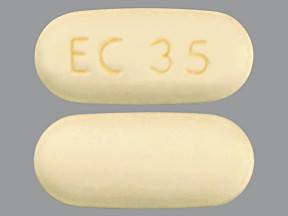RISEDRONATE DELAYED-RELEASE - ORAL
PHONETIC PRONUNCIATION: (RIS-e-DROE-nate)
COMMON BRAND NAME(S): Atelvia
GENERIC NAME(S): risedronate sodium
Uses
USES: Risedronate is used to prevent and treat certain types of bone loss (osteoporosis) in adults. Osteoporosis causes bones to become thinner and break more easily. Your chance of developing osteoporosis increases as you age, after menopause, or if you are taking corticosteroid medications (such as prednisone) for a long time. This medication works by slowing bone loss. This effect helps maintain strong bones and reduce the risk of broken bones (fractures). Risedronate belongs to a class of medications called bisphosphonates.
How to use RISEDRONATE DELAYED-RELEASE - ORAL
HOW TO USE: Read the Medication Guide, and if available, the Patient Information Leaflet if available from your pharmacist before you start taking risedronate and each time you get a refill. If you have any questions, ask your doctor or pharmacist. Take this medication by mouth with or immediately after breakfast as directed by your doctor, usually once a week. Choose the day of the week that best fits your schedule and take it on the same day every week. Do not take it at bedtime or while you are still in bed. Take this medication with at least half a glass (4 ounces/120 milliliters) of plain water. Do not take it with any other beverages. Swallow the tablet whole. Do not cut, crush, chew, or suck on it. Then stay fully upright (sitting, standing or walking) and do not lie down for at least 30 minutes. Calcium or iron supplements, vitamins that contain minerals, and products that contain calcium/magnesium/aluminum (such as antacids, laxatives) may interfere with absorption of risedronate. Medications such as quinapril, certain forms of didanosine (chewable/dispersible buffered tablets or pediatric oral solution), sucralfate, and bismuth subsalicylate may also interfere with absorption. Take these products at a different time of the day from when you take risedronate. Wait at least 30 minutes after taking risedronate before you take these other products. Take this medication regularly in order to get the most benefit from it. Remember to take it on the same day each week. It may help to mark your calendar with a reminder. Talk to your doctor about the risks and benefits of long-term use of this medication.
Side Effects
Precautions
Interactions
Overdose
Images
Reviews
Faq for RISEDRONATE DELAYED-RELEASE - ORAL
- Risedronate delayed-release oral medication is used to treat or prevent bone loss (osteoporosis) in men and postmenopausal women.
- Risedronate belongs to a class of drugs known as bisphosphonates. It works by altering the cycle of bone formation and breakdown in the body. It helps to slow down bone loss and increase bone density.
- You should take risedronate delayed-release medication exactly as prescribed by your doctor. It is usually taken once a day, at least 30 minutes before the first food, drink, or other medication of the day. You should take it with a full glass of plain water while standing or sitting in an upright position.
- Common side effects of risedronate delayed-release medication include stomach upset, diarrhea, mild joint or muscle pain, and headache. More serious side effects may occur, such as severe stomach or abdominal pain, difficulty swallowing, new or worsening heartburn, or severe bone/joint/muscle pain.
- It is important to inform your doctor about all the medications you are currently taking before starting risedronate delayed-release. Some medications, such as antacids, calcium supplements, or iron supplements, may interfere with the absorption of risedronate.
- The duration of treatment with risedronate delayed-release medication should be determined by your doctor. It is typically prescribed for several years to help maintain bone density and reduce the risk of fractures.
- It is generally recommended to avoid excessive alcohol consumption while taking risedronate delayed-release medication. Alcohol can increase the risk of stomach irritation and may decrease the effectiveness of the medication.
- If you miss a dose, take it as soon as you remember, unless it is close to your next scheduled dose. In that case, skip the missed dose and continue with your regular dosing schedule. Do not take two doses at the same time.
- Risedronate delayed-release medication is not recommended during pregnancy or breastfeeding. It may harm the unborn baby or pass into breast milk and cause harm to the nursing infant. Consult with your doctor for alternative options if you are pregnant or breastfeeding.
Disclaimer
IMPORTANT: HOW TO USE THIS INFORMATION: This is a summary and does NOT have all possible information about this product. This information does not assure that this product is safe, effective, or appropriate for you. This information is not individual medical advice and does not substitute for the advice of your health care professional. Always ask your health care professional for complete information about this product and your specific health needs.

No Reviews Yet